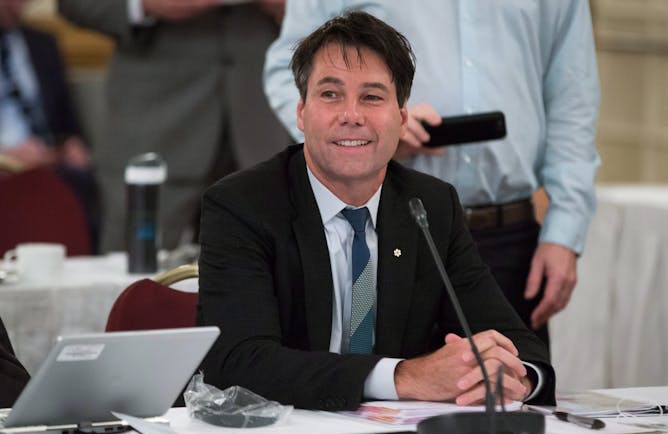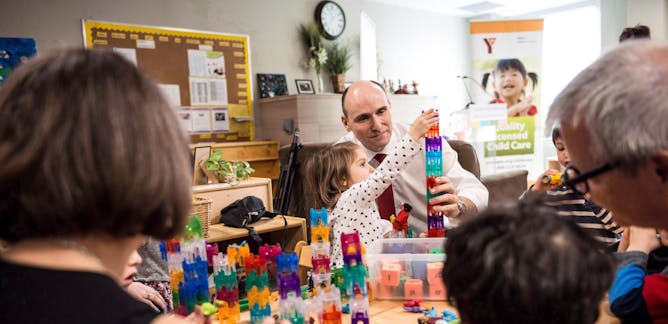|
The federal government announced this week it would create an Advisory Council on the Implementation of National Pharmacare, meaning Canada may finally have a national drug plan. This weekend in The Conversation Canada, Katherine Boothe of McMaster University looks at the history of previous attempts to bring in such a plan.
"Since the earliest days of Canadian health policy development, many politicians and top bureaucrats have viewed pharmacare as fundamentally unaffordable," says Prof. Boothe."This idea has persisted despite evidence to the contrary, and it makes them reluctant to consider bold reforms."
We also have assembled some great weekend reads from around the global Conversation network -- including some stories that will get you ready for the Oscars on Sunday night.
Have a great weekend and we'll be back in your Inbox on Monday.
|

The fact that Ontario’s health minister, Eric Hoskins, is resigning from his post to head up a newly announced advisory council on a Canadian pharmacare system bodes well, meaning Ottawa’s new initiative may go beyond being “just another study.” Hoskins is a longtime advocate for pharmacare.
THE CANADIAN PRESS/Darryl Dyck
Katherine Boothe, McMaster University
Will Ottawa's new advisory council on pharmacare amount to "just another study," or is a national program truly within reach?
|
Weekend Reads
|

Charlie Keil, University of Toronto
Throughout its history, the Academy Awards has picked some questionable winning films. But there are signs the Oscars are more often recognizing quality filmmaking.
| |

Leo Braudy, University of Southern California – Dornsife College of Letters, Arts and Sciences; Scott Higgins, Wesleyan University; Stephen Groening, University of Washington; Thomas Delapa, University of Michigan
Sound, color and special effects transformed the moviegoing experience. These inventions decidedly did not.
|

Julia Downes, The Open University
Speaking up and telling the truth is important, but we need to be mindful that it is risky, far from safe for all victims and survivors.
| |

Linda A. White, University of Toronto; Adrienne Davidson, University of Toronto; Michal Perlman, University of Toronto
Until all child care facilities are licensed -- and required to undergo criminal record checks, fire safety inspections and first aid training -- children will continue to die.
|

Amelie Meyer, Norwegian Polar Institute; Erik W. Kolstad, Uni Research; Mats Granskog, Norwegian Polar Institute; Robert Graham, Norwegian Polar Institute
The bizarre heatwave in the Arctic this week – with temperatures dozens of degrees above normal – is part of a growing trend of "warm air intrusions" that threaten to disrupt polar ice all year round.
| |

Derek E. Lee, Pennsylvania State University
A new study found that community-based wildlife conservation can quickly result in clear ecological success.
|

Steve Allsop, Curtin University; Eveline Lensvelt, Curtin University; Tanya Chikritzhs, Curtin University
The growing list of alcohol-related diseases includes bowel cancers, mouth and oesophageal cancers, breast cancers, heart disease, respiratory infections and mental health problems.
| |

Hervé Debar, Télécom SudParis – Institut Mines-Télécom, Université Paris-Saclay
The Internet provides us with many services thanks to sites hosted by servers. These may be the victims of denial-of-service attacks that paralyze the entire server.
|
|
|